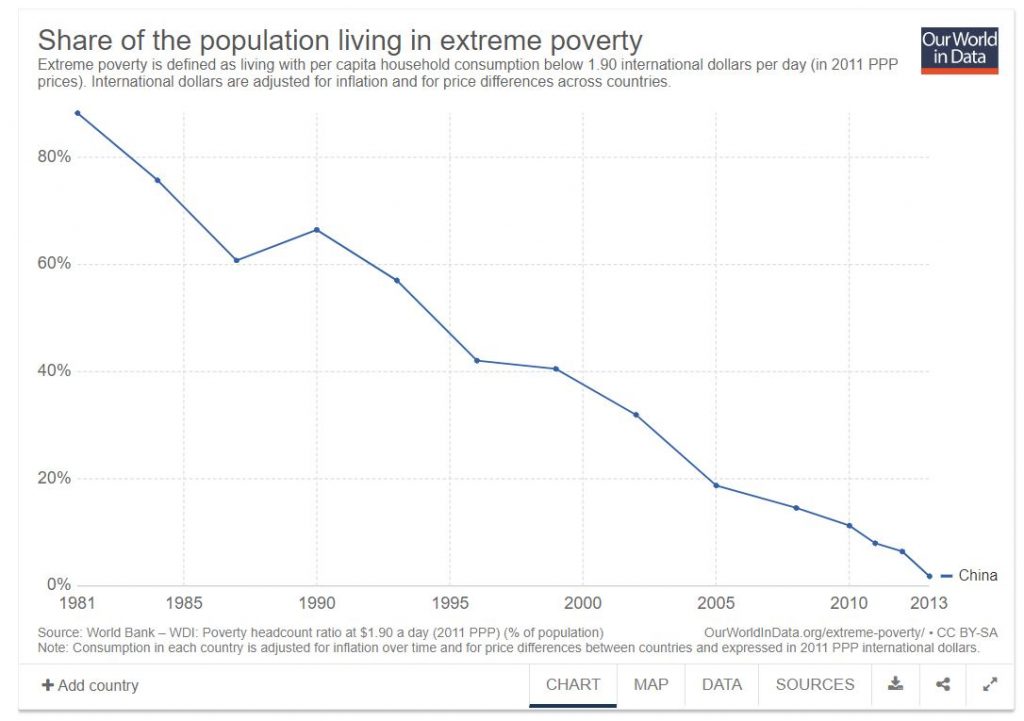The list of prominent men who stand credibly accused of sexually assaulting women and children just keeps growing. Just today, Kevin Spacey and Neil DeGrasse Tyson got added to it.
In my cynical moments, I agree with Malcolm Reynolds
https://www.youtube.com/watch?v=HG6UvDSuoF4
Do you think I’m exaggerating? Well, then you clearly missed the Wall Street Journal’s review of the Gandhi biography Great Soul which described (among many unsavory aspects of his life, from hypocrisy to outright racism) how “when he was in his 70s and close to leading India to independence, he [Gandhi] encouraged his 17-year-old great-niece, Manu, to be naked during her “nightly cuddles” with him.” If this is Gandhi, what did we expect from Harvey Weinstein or Bill Cosby? Perhaps our world is structured so that the people who get the statues built after them are the people willing to step on others to get there. After all, the blood on the hands of villains and the blood on the hands of saints is still the same color.
But there are two silver linings to the floodgates of accusations we’re now witnessing. The first is the most obvious: these men aren’t getting away with it anymore. For every famous icon who is shamed and punished, I hope there are dozens or hundreds of predators out there who begin to act with decency out of a sense of fear and self-preservation. I hope women are safer today than they were yesterday because of the courage of these women to come forward and name their attackers, and because a complicit and corrupt media has finally been shamed into covering the story.[ref]I should say: partially covering the story. I was disgusted to hear NPR discuss the Kevin Spacey allegations in terms of attacks against men instead of attacks against children. The ideological instinct to manufacture equivalence between genders is truly stunning, and it allows Hollywood pedophilia to remain as much as taboo subject today as Harvey Weinstein’s attacks were a month ago.[/ref]
The second is not as frequently commented on. That is the fact that the perpetrators defy partisan explanation. We’ve got a Republican president, a Holocaust survivor, a famous gay actor (that’d be Kevin Spacey), a scientist known for his views on global warming and atheism (DeGrasse Tyson), one of the mega-pundits of conservatism,[ref]And let’s not get: the entire network that covered for him.[/ref] and of course Harvey Weinstein was a major Democratic fundraiser. Democrat or Republican, straight or gay, black or white, the list of predators confounds just about every conceivable partisan breakdown. And if you think your particular partisan niche is safe, just wait. Because here are a couple of inviolable rules of human nature. The first is that men–yes, men in particular–are driven by sexual desire. The second is that power tends to corrupt. This means that when men have the power to coerce victims and get away with it, quite a lot of them will do so.
This has long been my problem with so-called “rape culture” criticism. The term “rape culture” implies that there is some kind of special, unusual set of assumptions required to create an environment in which sexual assault flourishes. It is a tragically naive view that the default, natural state of human beings is to be kind and nice to each other, and if only we could get rid of these ideological perversions–the patriarchy, toxic masculinity, whatever–and return society to its default, natural state then rape would go away.
But analyzing rape and sexual assault through a political lens has always been a lost cause, because the origins of sexual assault are not political or ideological. It does not require some kind of special philosophy, culture, or ideology to allow sexual assault to flourish. Rape culture is not some kind of aberration. It is the default. Civilization is the exception.
Some people have expressed surprise or even skepticism at the #MeToo campaign. I have not. For whatever reason, when I was growing up I was the kind of person people liked to confide in. So many of my female friends told me of the times they had been sexually assaulted (up to and including rape) that I have long supposed that a woman who hasn’t been sexually assaulted is very, very rare.
The reality is that men as predators are not exceptions or aberrations. It doesn’t take a specific culture for rapists to flourish. That’s the default. It takes a specific culture to counteract the natural tendency towards exploitation and abuse. It takes unnatural institutions like criminal justice systems alongside unnatural concepts such as honor and duty and sacrifice to create an environment where rape is suppressed.
If there’s one thing that I hope we can learn from these horrific revelations: this is it. That the ideas that men and women are interchangeable or that moral violations are political are bad ideas. They are political dogmas that fly in the face of common sense, science, and–most importantly–that consistently sabotage our efforts to build an anti-rape culture. Because we should be less concerned with tearing down rape culture and more concerned with building up anti-rape culture. We should be less concerned with teaching about consent–which is a horrifically low bar–and more concerned with teaching ideals of respect, honor, virtue, and love. We should be less concerned with sexual liberation and more concerned with discipline and self-control. Yes, I realize that the idea of teaching adolescents concepts like chastity and self-control sounds laughable today.
That’s why we’re here.
There will never come a day when rape does not exist in our society for the same reason that there will never come a day when theft and murder do not exist. But that doesn’t mean we are doomed to tolerate this degree of profligate harassment and exploitation, either. It doesn’t mean we have to do nothing or accept the status quo. We do not.
What does this look like in practice? I don’t think Weinstein was confused about consent. Teaching him the concept would have accomplished nothing. But teaching him about chastity would not have done an iota more good than teaching about consent. However, a society that still had some appreciation for ideals of chastity, fidelity, self-control, and what used to be called “decency” would be a much more hostile environment for predators. We live in a country where the President of the United States could coerce a young intern into a sexual relationship[ref]Don’t try and tell me that there is such a thing as consent across that power differential.[/ref] and instead of being viewed as a universal affront to civilization it became a partisan issue. The day we decided Bill Clinton’s abuse and exploitation of women was somehow his personal business and decided to rehabilitate a serial sexual abusesr and accused rapist into some kind of grandfatherly political icon was the day that we told every Harvey Weinstein, Kevin Spacey, Bill Cosby, and Neil DeGrasse Tyson in the world: go ahead. It’s open season. As long as you’re powerful enough, we’ll look the other way.
If we returned to old-fashioned concepts of honor, propriety, and decency maybe some boys would grow up to be better men and never assault women. I believe that would happen. But–worst case scenario–at least we could take away the horrific sense of entitlement that men of power are currently operating under. Because, as great as it is for the current crop of serial abusers to get taken out, as long as the underlying assumptions of our society remain unchallenged, the only thing that will change is that the next generation of predators will be smarter than the last.

 [M]ost [social psychologists] argue that it is a widespread tendency to attribute other people’s misfortune to personality traits rather than to the circumstances they find themselves in; we do the reverse when it comes to our own failures. This “fundamental attribution error” is discussed by Edward Glaeser, an economist at Harvard, and his colleagues in a recent
[M]ost [social psychologists] argue that it is a widespread tendency to attribute other people’s misfortune to personality traits rather than to the circumstances they find themselves in; we do the reverse when it comes to our own failures. This “fundamental attribution error” is discussed by Edward Glaeser, an economist at Harvard, and his colleagues in a recent 
 …Consumer demand is shockingly low overall: American spend 0.2% of their income on all reading materials, barely more than $100 per family per year. Americans used to spend more on reading, but never spent much: Back in 1990, well before the rise of the web, reading absorbed 0.5% of the family budget. Today’s Americans spend about four times as much on tobacco and five times as much on alcohol as they do on reading. Within this small pond, high culture is no big fish. Here are three rankings of the bestselling English-language fiction of all time. Sales figures include school purchases and assigned texts, so they overstate sincere affection for the canon.
…Consumer demand is shockingly low overall: American spend 0.2% of their income on all reading materials, barely more than $100 per family per year. Americans used to spend more on reading, but never spent much: Back in 1990, well before the rise of the web, reading absorbed 0.5% of the family budget. Today’s Americans spend about four times as much on tobacco and five times as much on alcohol as they do on reading. Within this small pond, high culture is no big fish. Here are three rankings of the bestselling English-language fiction of all time. Sales figures include school purchases and assigned texts, so they overstate sincere affection for the canon.
 Flavor bans for e-cigarettes and menthol in combustibles are pressing policy issues that have received relatively little empirical study. Now that the FDA has the power to regulate flavors in both combustible and e-cigarettes, it has again been considering flavor bans for all types of cigarettes (FDA, 2017). Thus, there is an urgent need for an analysis of the impact of flavor bans on public health. Despite the need for this information, there are no studies predicting the impacts of alternative bans on the use of combustibles, e-cigarettes, and neither. We provide such information for adult smokers and recent quitters using a DCE and a large, nationally representative survey.
Flavor bans for e-cigarettes and menthol in combustibles are pressing policy issues that have received relatively little empirical study. Now that the FDA has the power to regulate flavors in both combustible and e-cigarettes, it has again been considering flavor bans for all types of cigarettes (FDA, 2017). Thus, there is an urgent need for an analysis of the impact of flavor bans on public health. Despite the need for this information, there are no studies predicting the impacts of alternative bans on the use of combustibles, e-cigarettes, and neither. We provide such information for adult smokers and recent quitters using a DCE and a large, nationally representative survey.

